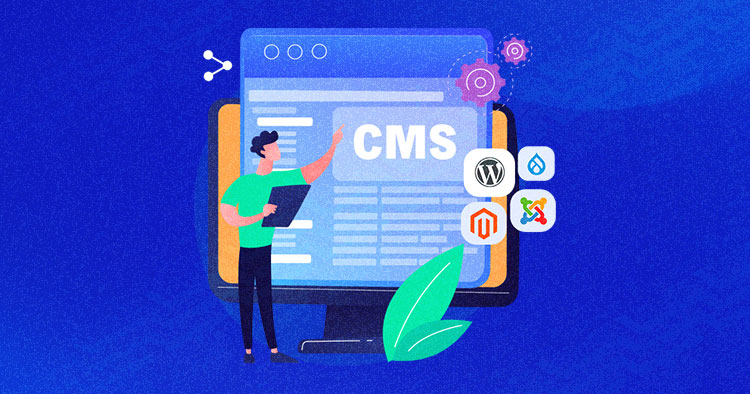You can often find the statement that a ready-made platform, such as WordPress, is always inferior to a custom CMS. Is it so? Let’s explore all the pros and cons of both approaches.
How optimal is one or another solution depends only on your exact circumstances
First, let’s understand the central thesis: not one of the two approaches we consider in this article is either good or bad. Each has its specific advantages and disadvantages. Whether you will build a website on one of the existing platforms, or entrust its development from scratch to a respected company, such as the SECL Group, depends on several subjective factors. The main, but by no means the only, conditions that affect the choice are:
- The budget that you are ready to allocate for development
- Deadline
- The purpose of the site
- The presence of special requirements for the future web resource
- Your plans for your future business: the dynamics of its scaling, the emergence of new services, expanding sales markets, etc.
The only circumstance that can lead to an unconditional rejection of a particular platform for site creation is its origin from the country whose production is under international sanctions. It is obvious that even if the development costs you much cheaper, further problems with the functioning, debugging, and updating of individual modules and a web resource as a whole can lead to the need to abandon the ready product and spend money on a new development free from such problems.
So, let’s see when you should opt for one of their existing ready-made platforms
To begin with, let’s dispel three widespread and interconnected delusions:
- All ready-made Platforms For site building are designed for amateurs who have no experience in developing
- All these platforms are free. Since good things cannot be cheap or free, such products do not deserve attention.
- Real professionals do not work with ready-made platforms but always create sites from scratch.
In fact, everything is precisely the opposite. With not dwelling on details, let’s just say that creating a custom CMS for your site by default is more expensive than using templates and modules. Therefore, some unscrupulous developers can use the lack of narrow -professional knowledge from the customer and, playing his vanity, persuade him to sign a more expensive contract even in those conditions when the situation does not require this. In addition, the developers themselves often use such platforms.
Suffice it to say that WordPress, the most popular platform on the World Wide Web, has been used to build sites of such giants of business:
- Sony Music
- Renault
- Mercedes-Benz USA
And an immense number of others, no less mighty and authoritative companies.
So, what does the choice of a ready-made platform give you:
- Development speed. Making the most straightforward page can take a couple of hours. Writing a standard website, considering amendments and clarifications, will take a week to ten days.
- The simplicity of a website creating. Such platforms have bottomless libraries of templates designed for any everyday needs – e-commerce, dating sites, thematic forums, representatives of companies, etc. Hence, searching for and adapting a solution suitable for you will not cause difficulties, even for a novice developer.
- Saving resources. The use of existing and proven CRMs, for obvious reasons, is always more affordable than ordering a system to develop a product specifically for your needs.
- Automation “out of the box.” The libraries of the ready-made platform modules initially aim to build chains of interaction with each other. This means that writing and testing additional scripts and developing original algorithms are not required.
You can logically ask: “If everything is so ideal with platforms like WordPress, why are the developers of sites from scratch still haven’t gone bankrupt yet?
To answer, let’s look at the capabilities that the customer receives as a result of ordering a site on a custom CMS:
- Absolute originality of design. Since creating a website, in this case, is not attached to any templates, artists are free to create something, even in common frames not similar to the products of other companies. However, bear in mind that modern trends dictate laconicism and minimalism in design. Therefore, templates artists take into account this fashion. If you decide to stand out at the expense of some too-unusual solutions, your visitors are unlikely to appreciate such originality. Thus, your space for a design maneuver is quite rigidly limited by users, who mainly do not value savage visual experiments too much.
- SEO optimization, which is configured to the specifics of your website. Of course, this is a significant advantage. Nevertheless, it is worth considering that if your website is not a unique product in your niche, the ready-made modules successfully cope with promoting standard resources in search engines.
- Rich functionality. Of course, this factor is crucial for the web resource to which special requirements are applied, such as the bank, insurance company, or bio laboratory website. But if we are talking, for instance, about an e-Commerce platform, solutions like WordPress can offer a large selection of already tested and well-established solutions.
- Scalability. Another critical feature of sites written from scratch. If you set the appropriate task for the developer, he will lay the possibility of expanding your business to a transatlantic corporation and even more.
- Safety. According to statistics, websites created on the basis of famous platforms are daily subjected to almost one hundred thousand hacker attacks all over the World Wide Web. If you order your site from experienced specialists who have examples of creating reliable protection for custom CMSs in their portfolio, you should discuss this aspect with them. However, be prepared for the fact that enhanced protection will require a significant increase in the budget, not only in the creation process but also in further maintenance.
Summing up
As you can see, any possible solution has its own specifics. At the same time, most of the advantages or disadvantages listed in this article are not absolute and suggest a flexible assessment. Therefore, do not become hostages of developers who are peremptorily imposing an “only correct” solution on you. Weigh the pros and cons, ask them a billion questions, and choose exactly the option that most fully corresponds to your current needs and prospects.







